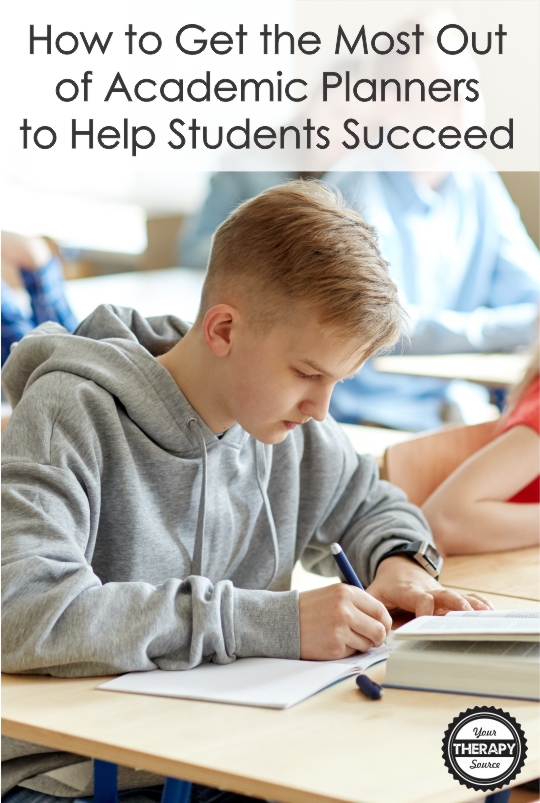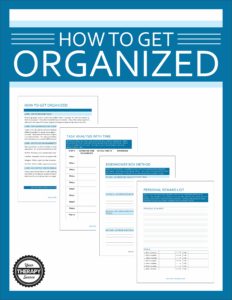Using Academic Planners for Students with Executive Function Deficits
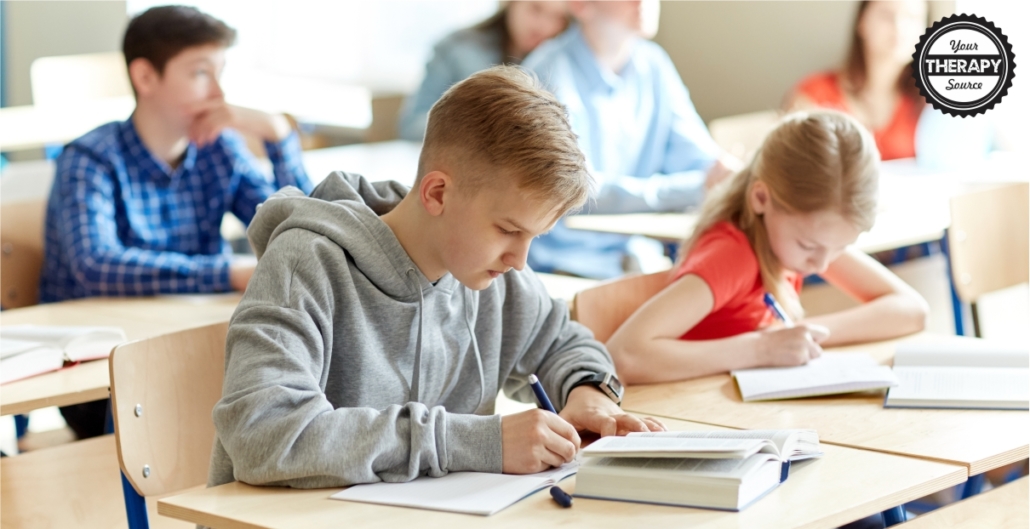
When students are organized, it can help them to achieve their goals in a timely manner and to stay on track for assignments and exams. Many students with executive function deficits can struggle with organizational skills and staying on task. Using academic planners for students with executive function deficits can help them to organize tasks so they will know what and when they need to accomplish the tasks.
When to Start Using Academic Planners for Students
The best time of year for students to use academic planners is the start of the school year. It can create healthy habits that will last the whole year. Only problem is, we know as adults, those habits are hard to sustain. How many times have you started out with to-do lists or daily planners and slowly stopped using them to only feel disorganized and out of control. Therefore, introducing or re-introducing academic planners for students (or yourself!) is a helpful suggestion anytime of the school year.
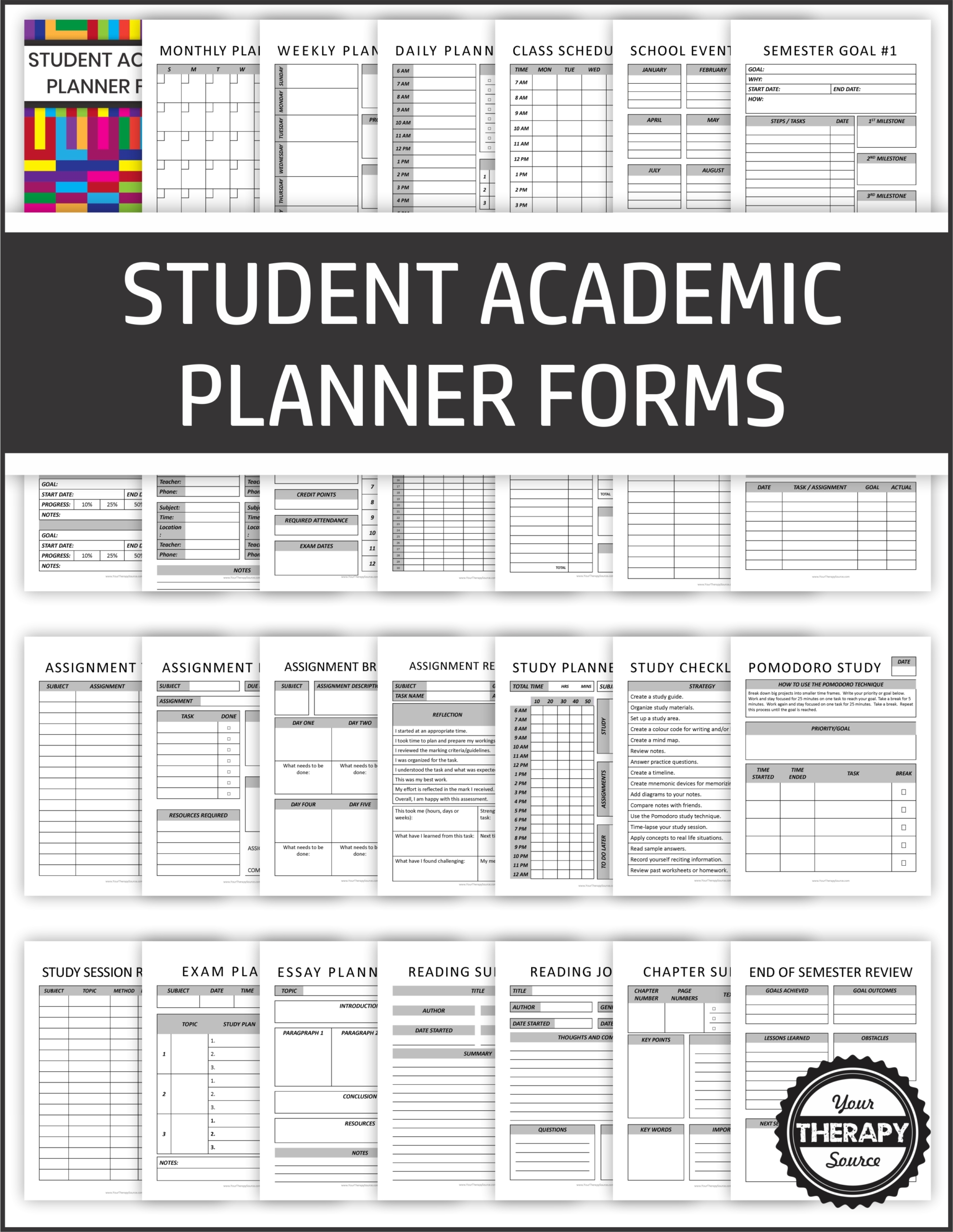
Student Planner PDF – Forms and Lists
Types of Academic Planners
Through the years, most students have probably used various kinds of planning tools before, including a daily or weekly planner, a month-at-a- glance planner, and so on. It is important to keep in mind that the purpose of scheduling is to record a student’s decisions about when certain things should happen. It provides them with ownership of their tasks and goals.
Planners can be found in many places and in many different formats. Students may need to try different types of planners to determine what one works best for them.
When and How to Use Academic Planners
A student’s planner should include their schedule for classes, study time, homework assignments, social events, club meetings, exercise time, and any other time necessary to achieve their goals.
Keep the Planner with You to Help with Working Memory
The first step in establishing a routine of using a planner is to make sure that the students have the planner with them during class and note all assignments along with the due dates of those assignments. Students can check them off as they complete them so they know where they are with their projects.
Keep the planner in one specific place. Organizing time with a calendar depends on them always being able to easily put their hands on the academic planner for students. They can keep it in their backpack at school or by their bed at home.
For students with executive function deficits, the planner can be a beneficial tool to help with working memory.
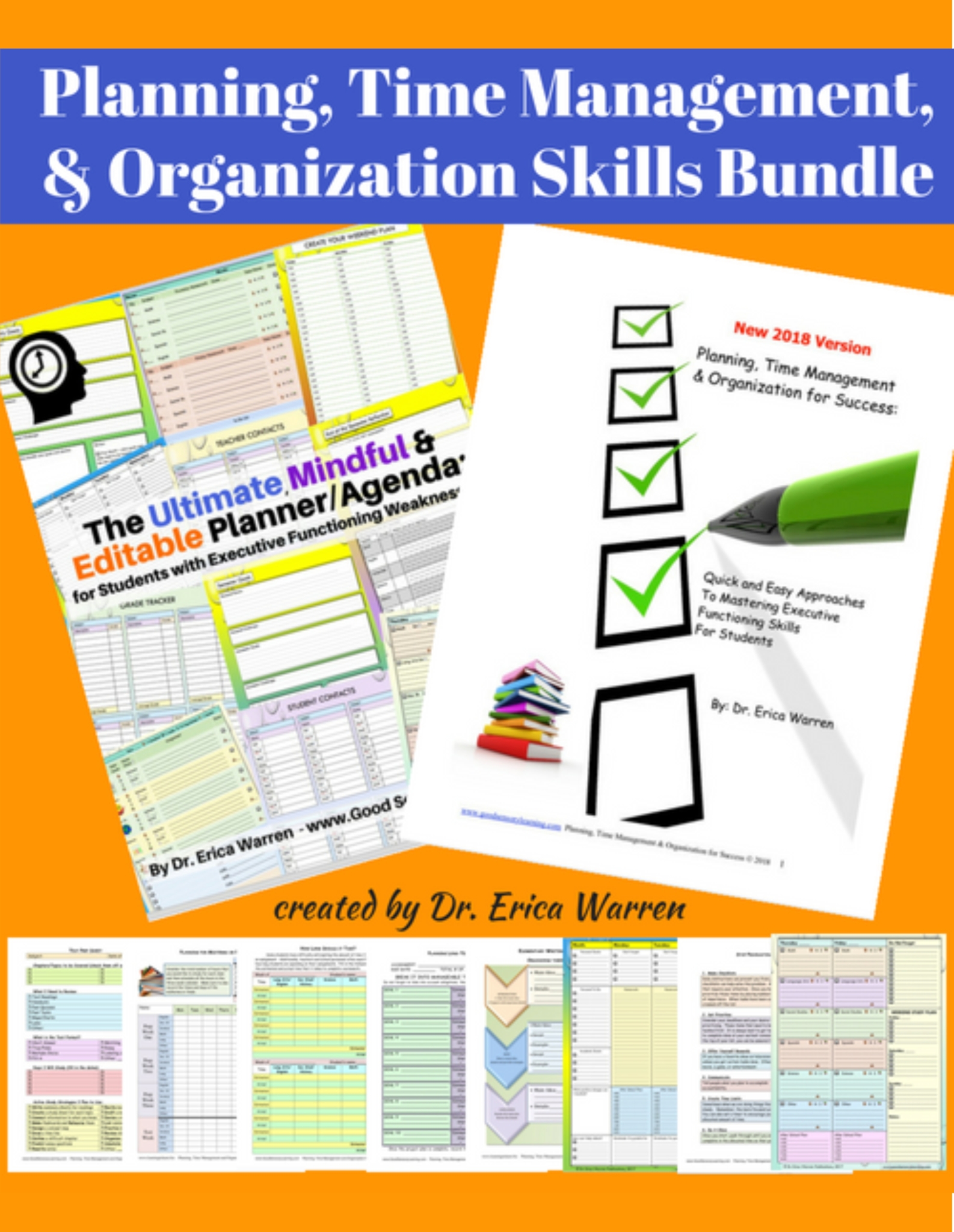
Planning, Time Management, and Organization Skills Bundle
Refer to the Planner Often Throughout the Day
The second step in creating a routine with the planner is to refer to the planner often, even multiple times a day. Encourage students to get up in the morning and look at their planner to review what needs to be done for that day. At lunch, students can glance again to see what it ahead for the rest of the day. Not only will this help with working memory but also with time management skills.
Record Extra Information If Needed
When recording information in the planner, include important information when the students first write down the appointment or assignment. For example, if they have an appointment, they need to include a phone number or email next to the notation in case they have to cancel or change times.
Use a Highlighter
Encourage students to use a highlighter. Color-coding can help differentiate between appointments and assignments. For example, students can highlight in blue for classes, yellow for assignments, and green for everything else. The key here is easy recognition. When the academic planners for students are open, then students can easily see what needs to be done based on the color coding.
Use it to Plan Assignments
Some specialized academic planners will have additional pages to record due dates and lists to break up assignments. This is especially important for large tasks that take more than a few hours to complete.
Teach Students to See the Benefits of Academic Planners
Remember, sometimes specific skills need to taught with explicit instruction. When students are internally motivated to use the planner and see the benefits they will be more likely to use academic planners on a daily basis. Practice recording assignments and tasks together at first so you can provide constructive feedback as the students learn how to use the planner effectively.
Remind students that the planner can be used as a time-bound memory aid, tracking major deadlines and exam dates, appointments, important anniversaries, birthdays, holidays, vacations and so on.
They can benefit even more from the planners if they use it to record interim deadlines and forecast upcoming busy periods as final deadlines approach.
A properly completed planner will indicate upcoming busy periods, show whether there is room in the plan for new tasks, and help students assess whether they are on target to achieve their goals. These healthy habits will not only benefit students during their school years but their working years as well.
Resources to Help Students with Academic Planners
Here is additional information to help students with organizational and planning skills:
How to Teach Organizational Skills to High School Students
Poor Executive Function Skills? Try Using Chaining
Get 6 FREE Executive Functioning Worksheets here.
Sign up to receive the weekly email newsletter and announcements from Your Therapy Source. You will be redirected to the download. If you are already a subscriber, please still enter your email to access the download.
